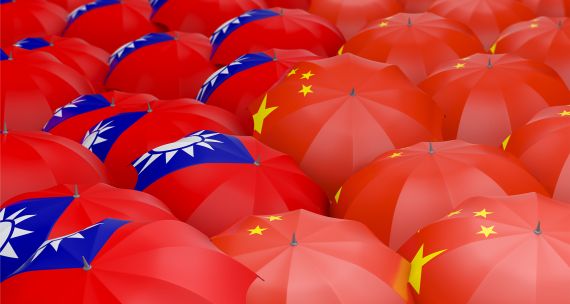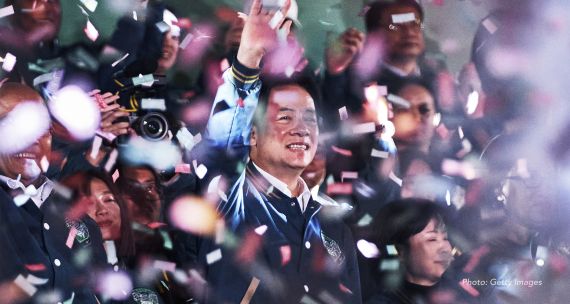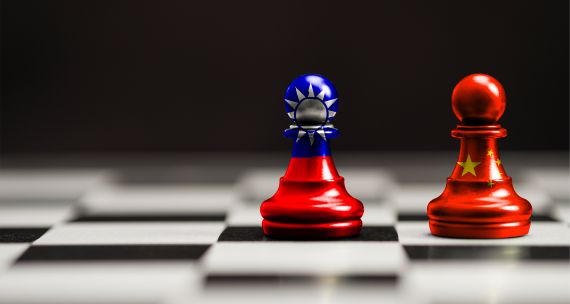Tsai Ing-wen, the democratically elected representative of the independence-leaning Democratic Progressive Party, was sworn in May 20 as President of the self-styled Republic of China, known to almost everyone as Taiwan. Her inauguration speech laid out her domestic economic and social agenda, but also included an important "gesture of goodwill" to China by indirectly acknowledging the basis for continuing dialogue. The continuation of pragmatic working relations between Taiwan and China has implications for Canada.
Ms. Tsai made clear that she favours maintaining the direct links that have flourished over the past eight years under her predecessor, Ma Ying-jeou of the Kuomintang (KMT). However, she studiously avoided any reference to China's key demand, acknowledgment of the so-called 1992 consensus.
To have done so would mean accepting Beijing's insistence on "one China." The consensus is based on a 1992 understanding between unofficial organizations representing the two sides on their respective interpretations of the meaning of "one China." After the KMT came to power in 2008, China declared that the consensus met its minimum condition that dialogue should take place within the parameters of "one China" and not on a state-to-state basis, and used it to justify the negotiation of direct links.
It's not surprising that Ms. Tsai did not directly acknowledge the magical "consensus" formula in her inauguration speech. She was not elected to endorse the KMT's one-China principle, seen by many Taiwanese as giving China too many economic levers. But neither does her electorate want to rock the boat. Various polls show that while most Taiwanese would prefer independence, they also recognize that such a step would precipitate an economic and political crisis. The majority, therefore, favour the current ambiguous relationship.
In her speech, Ms. Tsai stated she was elected President in accordance with the constitution of the Republic of China and mentioned the "joint acknowledgments and understandings" that took place in 1992.
Whether this deliberately ambiguous wording will be sufficient for China remains to be seen. For now, there is likely to be a pause. Nevertheless, provided that Ms. Tsai plays her cards well over the longer term, the prospects are positive for a resumption of correct (if not warm) China-Taiwan relations.
Ms. Tsai's challenge is to persuade China to not roll back the gains that have been made in establishing a full range of cross-Taiwan Strait activities (direct air links, tourist and student exchanges, bilateral agreements on the environment, fisheries, postal services and so on) without being seen by Taiwanese voters as being too compliant.
She has to signal to China that she will not make any moves toward independence while sending the message to her electorate that she will bring a new tone to relations with China, by standing up for Taiwan and seeking to diversify interests. In her speech, she emphasized a new "southbound" policy, expressed a desire to join both the Trans-Pacific Partnership and Regional Comprehensive Economic Partnership agreements, two regional trade blocs being finalized, and noted specifically that her administration will "bid farewell to our past overreliance on a single market" – a signal directed at China that Taiwan intends to increase its trade with other countries.
Beijing has already reacted negatively by calling the remarks "incomplete" and chiding Ms. Tsai for failing to explicitly recognize the consensus – but what action will it take? It could flex its economic and diplomatic muscles, but once the posturing is over, common sense and pragmatism suggest the two sides are likely to find some form of acceptable modus vivendi.
For Canada, the conciliatory message Ms. Tsai sent in her inauguration speech has implications for our relations with China – and Taiwan.
Prime Minister Justin Trudeau's government is undergoing a review of Canada's policy options on China, and Mr. Trudeau is widely expected to make an official visit to Beijing on the margins of this fall's Group of 20 meeting. Under consideration is Canadian membership in the China-sponsored Asian Infrastructure Investment Bank and a possible announcement of a start to negotiations toward a free-trade or economic partnership agreement with China.
At the same time, Canada continues to have fairly robust economic relations with Taiwan, although the balance of trade is heavily in Taiwan's favour. Recently, we concluded an agreement to eliminate dual taxation of businesses. Taiwan would like the next step to be an investment-protection agreement, followed by a bilateral trade deal along the lines of the one it has with New Zealand.
There is certainly scope for Canada to do more with Taiwan to advance its economic interests, and to strengthen cultural and educational ties for mutual benefit. To the extent that China and Taiwan can agree to maintain a peaceful and productive bilateral dialogue, this is good news for Canada, as it helps ease the way for the further pursuit of our interests on both sides of the Taiwan Strait.
Given the likely expansion of ties between Canada and China, there is still plenty of latitude for Canada to simultaneously further develop relations with Taiwan. For Canada, this does not have to be a case of dealing with one at the expense of the other.
This piece was first published in The Globe and Mail on June 1, 2016.




